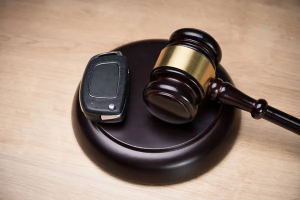
Every year, countless Californians suffer the aftermath of car accidents. Understanding California’s car accident laws and rights as a victim is crucial. Marcereau Law Group are dedicated to helping car accident victims navigate the complexities of these laws and get the justice they deserve.
If you are involved in a car crash, ask California Highway Patrol and EMS to come to the scene. Be honest with the law enforcement officer, and see a doctor. Then, give our team a call. We are well-versed in California car accident law and can use our experience to help you. We may secure compensation for damage to your motor vehicle and any medical payments you have incurred.
Learn more about our services below, and give us a call to schedule a consultation.

California’s legal framework concerning car accidents is designed to protect everyone in a car collision. You should be familiar with these laws, as they can significantly influence any claims or legal actions that may arise. Count on our team to represent you.
In California, the comparative negligence system is employed in car accident cases. If you are partially blamed for the crash, your settlement could be proportional to your fault. For instance, if you were found to be 10% responsible for a crash, any damages given to you would be reduced by 10%. However, even if you’re more at fault than the other party, you can still recover some damages, which sets California apart from some states.
Under this system, it’s essential to have a skilled lawyer represent your interests. Insurance companies often attempt to pin more blame on victims to reduce payout amounts. A seasoned attorney can contest these allegations and work to secure a fair compensation amount for you, ensuring your responsibility is accurately represented.
In California, victims have two years from the crash to submit their lawsuit for medical expenses. If you’re filing a claim for property damage, you have three years. Acting within this period is crucial; otherwise, your claim may be barred regardless of its merits.
Every driver on the road has a duty of care towards other road users. This means they must operate their vehicles safely and responsibly, avoiding any actions that could cause harm. This duty extends to obeying traffic rules, staying alert, and ensuring their vehicle is in proper working condition.
However, when a driver breaches this duty of care—perhaps by texting while driving, speeding, or driving under the influence—they can be held liable for the resulting damages. This breach is often the foundation for personal injury claims in car accidents.
Proving causation is the next step. It’s not enough to show that the other driver was negligent. Victims must also demonstrate that the action or inaction of the other party contributed to their damages. For instance, if a driver ran a red light (breach of duty) and hit another car, causing injuries, this action directly led to the accident.
Finally, to secure compensation, the victim must prove that they suffered damages as a result of the accident. This could include medical bills, repair costs for damaged vehicles, lost wages, or even non-economic damages like pain and suffering.

If you drive in California, it’s essential to understand the California insurance code. These mandatory insurance laws are designed to ensure that, in the event of an accident, victims have a way to recover some of their losses.
California states that all drivers must have a minimum amount of liability insurance. Liability insurance should pay for the harm you cause to others if you’re at fault in an accident. The minimum limits are $15,000 for injury or death to one person, $30,000 for injury or death to multiple people and $5,000 for property damage.
It’s worth noting, though, that these are just the minimums. Given the high costs associated with car accidents—both in terms of medical bills and property damage—many experts recommend getting coverage beyond these base amounts. This way, you’re better protected financially should a major accident occur.
Despite the laws, not every driver in California carries the required insurance. For situations where the at-fault driver doesn’t have insurance or has inadequate coverage, uninsured and underinsured motorist coverage can be a lifeline. It helps cover the costs of damages when the responsible party cannot. Having this coverage in California is not mandatory, but it’s highly recommended. If an uninsured driver hits you and you don’t have this protection, you might end up paying out of pocket for your injuries and damages, even if you weren’t at fault.
California is not a no-fault state, meaning that drivers are responsible for the financial harm they cause in an accident. Victims have the right to sue the at-fault driver for both economic and non-economic damages. In some no-fault states, victims can’t sue unless their injuries are severe, but that’s not the case in California.
Understanding this distinction is essential, as it influences the strategy and approach when seeking compensation. In California, the at-fault party’s insurance typically pays out claims, but victims might need to turn to their policies or even take legal action if they’re underinsured or uninsured.
After a car accident in California, specific reporting and documentation requirements come into play. Proper adherence to these steps can significantly influence the outcome of any resulting claims or lawsuits. The following points highlight these essential processes.
Immediate Reporting to Law Enforcement
If someone is hurt or killed or property damage exceeds $1,000, drivers must report the accident to the DMV within ten days. Failure to do so can result in penalties or even license suspension.
Reporting to the Department of Motor Vehicles (DMV)
If someone is hurt or killed, or if property damage exceeds $1,000, drivers must report the accident to the DMV within ten days. Failure to do so can result in penalties or even license suspension.
Gathering Evidence at the Accident Scene
Collecting evidence at the scene is critical. This could include photographs of damages, skid marks, traffic signals, and other relevant factors. This evidence can help establish fault and the circumstances leading to the crash.
Importance of Witness Statements and Photographs
Witnesses can give an unbiased statement of what transpired. Securing their statements can support your version of events. Similarly, photographs capture the scene and damages, serving as visual evidence that can be invaluable in claims or court.
Understanding and fulfilling these requirements can shape the outcome of any potential claim. It’s crucial to act promptly and efficiently, ensuring all necessary steps are taken to support your case.

Pursuing compensation after a car accident involves a series of critical steps. Each phase is essential to ensuring victims receive the justice and compensation they deserve. The following outlines this claims process in California.
Initial Consultation With an Attorney
Meeting with an attorney is the starting point. They’ll review the details of your case, provide legal advice, and outline a plan for pursuing your claim. Remember, not every accident requires legal action, but a lawyer can guide you on the best route to take.
Collecting and Preserving Evidence
Evidence plays a pivotal role in proving fault and establishing the extent of damages. Your lawyer will collect all pertinent information, from accident scene photos to medical records, ensuring everything is in order for the claim.
Communicating With Insurance Companies
Dealing with insurance companies can be challenging. They often seek ways to minimize payouts. Your attorney will handle these communications, ensuring your rights are upheld and you get a fair settlement.
Negotiating a Settlement
Most car accident claims get resolved through settlements. Your lawyer will work with the insurance company to secure a fair compensation amount for your damages.
Filing a Lawsuit if Negotiations Fail
If negotiations stall or the offered settlement is unsatisfactory, taking the case to court might be the next step. This step isn’t always necessary, but it ensures victims have another avenue to pursue justice.
While the claims process can be daunting, having the proper legal support can simplify it. A skilled lawyer can navigate these steps, ensuring you receive the compensation you deserve.
In California, car accident cases are subject to a statute of limitations that can significantly impact your ability to seek compensation for injuries, property damage, or other losses resulting from the accident. The statute of limitations for personal injury and property damage claims related to car accidents in California is generally two years from the date of the accident, as per the California Code of Civil Procedure Section 335.1.
This means that if you wish to file a lawsuit for personal injury or property damage resulting from a car accident in California, you typically have a two-year window from the date of the accident to do so. If you fail to file a lawsuit within this time frame, you may lose your right to seek compensation through the court system.
When pursuing a car accident claim in California, it’s vital to understand the different types of damages available. These damages can be grouped into economic, non-economic, and punitive categories, each offering compensation for distinct losses.
If the actions of the blamed party are so egregious, the court could award punitive damages. These aren’t meant to compensate the victim but rather to punish the wrongdoer and deter such behavior in the future. While not common, these damages can significantly increase the total compensation in particularly reckless or malicious cases.

It can be difficult to process an accident, especially when dealing with injuries, insurance companies, and potential legal complexities. That’s where a skilled California car accident lawyer becomes invaluable. They possess the expertise to thoroughly investigate the incident, collecting and preserving essential evidence to bolster your case. Moreover, these attorneys understand the intricate nuances of California’s car accident laws, ensuring that your rights are consistently protected and upheld.
Beyond the initial investigation, your lawyer will be instrumental in handling communication and negotiations with insurance companies. Insurance adjusters often aim to minimize payouts, but a seasoned attorney knows how to counter their tactics and advocate for a fair settlement on your behalf. Should negotiations stall or prove unsatisfactory, your lawyer is prepared to escalate the matter to court, representing your best interests throughout the trial.
We can be that representation for you. Contact us today to schedule a case consultation. We can file a personal injury lawsuit on your behalf.

If you’ve been involved in a car accident in California, navigating the legal maze can be overwhelming. That’s where we come in. At Marcereau Law Group, we are committed to guiding you through every step, ensuring your rights are upheld. With our expertise, we’ll tirelessly work to secure the compensation you deserve, allowing you to focus on healing.
Car accidents can change lives in an instant. But with the right legal ally by your side, the journey to justice becomes more manageable. Don’t hesitate. Reach out to Marcereau Law Group today, and let us champion your cause.
Schedule Your Free Consultation
"*" indicates required fields


"*" indicates required fields